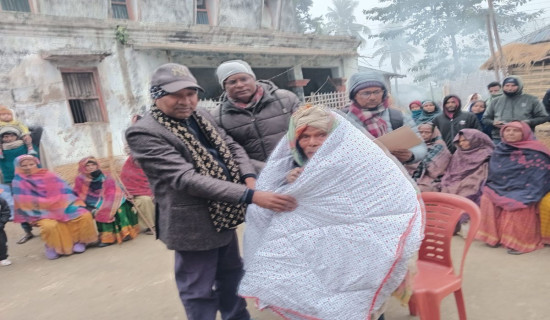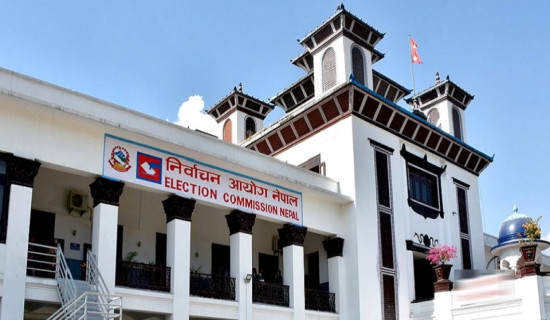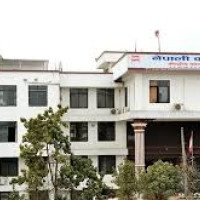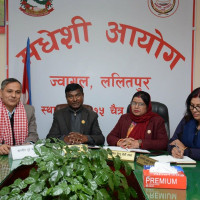- Wednesday, 7 January 2026
PM stresses agricultural modernisation
By A Staff Reporter,Kathmandu, Apr. 16: Prime Minister KP Sharma Oli has stressed the urgency of agricultural modernisation, regional cooperation, and sustainable environmental practices, while warning against populist anarchy and regressive political tendencies that threaten democratic progress.
Speaking at the Second South Asian Farmers’ Federation Conference in Kathmandu, Oli said that Nepal and much of South Asia remain trapped in a ‘transitional phase’, where feudal remnants and outdated mentalities still linger despite dramatic social and political shifts.
“Colonialism is over, feudalism is nearly gone but their shadows remain. We must overcome these remnants to move forward,” he said.
Highlighting the contradiction between Nepal’s demographic and economic realities, Prime Minister Oli noted that over 60 per cent of Nepal’s population is engaged in agriculture, yet its contribution to the national economy remains disproportionately low.
He called this ‘a matter of grave concern’ and stressed the need for mechanisation, commercialisation, and proper market access for farmers.
“Agriculture feeds us all, and it is the most essential profession, yet it has been neglected,” PM Oli said.
He drew attention to Nepal's growing reliance on food imports, describing it as a painful shift from its past as a food-exporting and self-sufficient nation. “We are importing food in a country once known for agricultural exports. This is unacceptable and must change,” he stated.
According to PM Oli, without modernising agriculture, the development of agro-based industries and the creation of jobs would remain limited. The lack of employment opportunities has led to a wave of outward migration, with young people leaving not just rural areas but the country itself. “It’s not just about joblessness; even those with jobs can’t sustain a living, which forces them to seek better lives abroad,” he said.
The Prime Minister also addressed the rise in dissatisfaction and populist sentiments across the region, criticising what he described as ‘anarchic elements’ who reject democratic processes and constitutional governance.
“They don’t believe in democracy or elections, yet they want to capture power from the streets,” he warned, arguing that such groups lack popular support and exploit public frustrations.
Likewise, speaking on environmental concerns, PM Oli emphasised the dangerous consequences of unchecked carbon emissions, open burning of crop residues, and rampant forest fires, particularly in the Kathmandu Valley.
He linked these practices to rising pollution levels, glacier melt, and disrupted ecosystems and called for a regional effort to combat climate change. “From Iran to Gujarat to Bangladesh, what happens in one place affects us all. We need joint action,” he said.
Similarly, PM Oli urged farmers to adopt sustainable practices, such as using crop residues as fertiliser rather than burning them, and highlighted the role of agriculture in combating climate change. “We are the custodians of the earth. Farmers feed the world, often silently, so we must empower them,” he said, adding that healthy food should nourish people, not just fill stomachs.
He also encouraged the South Asian farming community to formulate policies tailored to their local contexts, share best practices, and commit to a united agricultural vision.
















